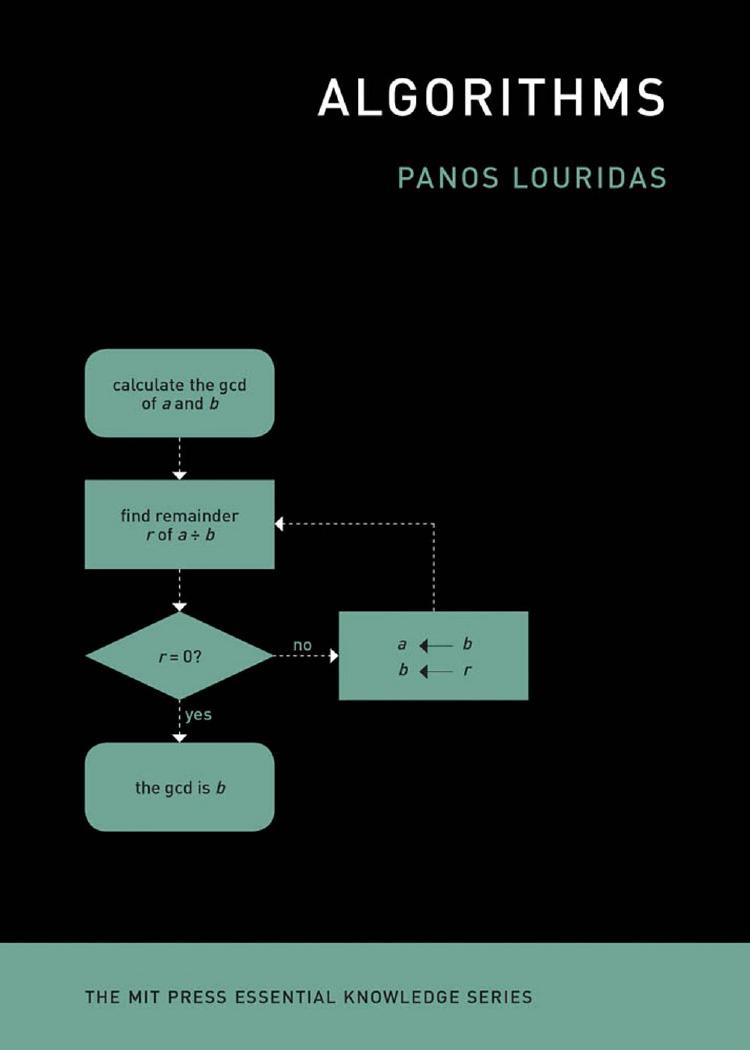Algorithms by Panos Louridas

Author:Panos Louridas [Louridas, Panos]
Language: eng
Format: epub, pdf
Tags: algorithms; complexity; computer applications; graphs; searching; sorting; PagerRank; deep learning; technological implications
Publisher: MIT Press
Published: 2020-07-24T00:00:00+00:00
5
PageRank
If you are below a certain age, the words HotBot, Lycos, Excite, AltaVista, and Infoseek mean nothing to you, or if they do mean something, they probably do not mean search engines. Yet all of them were vying for our attention at some point or other, trying to get us to use them as the gateway to the web.
This is history now, as the search engine landscape is dominated by two services, Google, run by Alphabet, and Bing, run by Microsoft. The explosion of many competing solutions in a new market, and their subsequent consolidation, is a pattern that we have witnessed in many industries in history. What is remarkable in the search engine space is that we know that a large factor in the evolution is the phenomenal success of Google, which in turn was based on an algorithm that its founders invented. The founders were Larry Page and Sergey Brin, doctoral candidates at Stanford University, and they named their algorithm PageRank, after Page (and not after “page” and rank, as one might expect).
Before we embark on a description of PageRank, we need to understand what exactly search engines do. This is actually two things. First, they crawl the web, reading and indexing all the web pages they can come across. In this way, when we type in a search term, search engines look into the data they have stored on the crawled web pages and find the ones that match our query. So if we search for “climate change,” the search engines will search through the data they have amassed to find the web pages that contain this search term.
If our search term describes a popular topic, the results can be numerous. At the time of this writing, the query “climate change” on Google returns more than 700 million results; this number may be different when you read these lines, but you get an idea of the scale. This brings us to the second thing that search engines do. They must present the search results so that those that are more pertinent to what we are looking for appear first, and those that are less likely to interest us appear later. If you are trying to learn the facts about climate change, you would expect to see results from the United Nations, National Aeronautics and Space Administration (NASA), or Wikipedia come up on top. You would be rather surprised if the top result was a web page explaining the view of the Flat Earth Society on the topic. From the hundreds of millions of web pages that may be related to your query, many will be trivial; others may be bloviating, and yet others will be utter nonsense. You want to hone in on those that are to the point and authoritative.
When the Google search engine arrived on the scene (the author is old enough to remember), people (the author included) started switching to the newcomer from other, older, now-extinct search engines because its results were better and they arrived faster.
Download
This site does not store any files on its server. We only index and link to content provided by other sites. Please contact the content providers to delete copyright contents if any and email us, we'll remove relevant links or contents immediately.
API Testing and Development with Postman by Dave Westerveld(4097)
Learning C# by Developing Games with Unity 2020 by Harrison Ferrone(3069)
Software Architecture for Busy Developers by Stéphane Eyskens(2862)
2021 Beginners Guide to Python Programming Language: A Crash Course to Mastering Python in One Hour by Elmer Gary & Elmer Gary(1934)
Machine Learning for Algorithmic Trading by Stefan Jansen(1691)
Hands-On ROS for Robotics Programming by Bernardo Ronquillo Japón(1612)
Delphi GUI Programming with FireMonkey by Andrea Magni(1504)
Game Development Projects with Unreal Engine by Hammad Fozi & Goncalo Marques & David Pereira & Devin Sherry(1466)
Cloud Native with Kubernetes by Alexander Raul(1418)
Datadog Cloud Monitoring Quick Start Guide by Thomas Kurian Theakanath(1390)
Software Architecture Patterns for Serverless Systems by John Gilbert(1386)
Practical Node-RED Programming by Taiji Hagino(1371)
Automate It with Zapier by Kelly Goss(1359)
Practical System Programming for Rust Developers by Prabhu Eshwarla(1353)
Delphi Programming Projects by William Duarte(1338)
Mastering React Test-Driven Development by Daniel Irvine(1332)
Advanced Algorithms and Data Structures by Marcello La Rocca(1306)
Developing Multi-Platform Apps with Visual Studio Code by Ovais Mehboob Ahmed Khan & Khusro Habib & Chris Dias(1296)
Ghidra Software Reverse Engineering for Beginners by A. P. David(1283)
